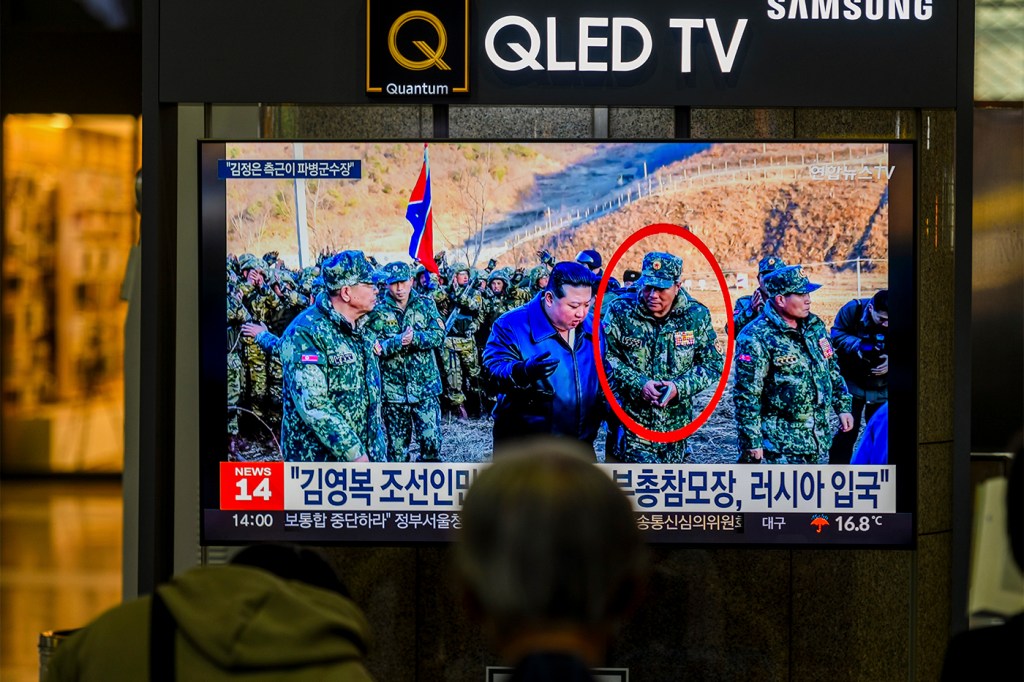North Korean troops are reportedly aiding Russia. What kind of effect could they have on the battlefield?
“It’s actually hard to know much about how helpful the North Korean troops will be to the Russians given that we know little about North Korean troops’ readiness for actual battlefield situations,” Mai’a Cross says.

North Korean combatants are reportedly aiding Russia in recent days and weeks in its war against Ukraine in what one Northeastern international relations scholar calls “a serious development.” And it’s one coming on the heels of a potentially dramatic shift in U.S. foreign policy in Europe.
“It’s definitely an escalation of the war,” says Mai’a Cross, dean’s professor of political science, international affairs and diplomacy, and director of the Center for International Affairs and World Cultures at Northeastern University.
Five months ago, Russian President Vladimir Putin and Kim Jong-un, North Korea’s supreme leader, revived a Cold War-era treaty described as a “defense pledge” in which either nation would come to the aid of the other in the event of “aggression” from a neighbor, according to the New York Times.

This week, a Pentagon spokesperson told reporters that more than 10,000 North Korean troops had traveled thousands of miles from Russia’s Near East to the Kursk region, where Russia and Ukraine have been locked in battle following a Ukrainian surprise offensive.
Little is known about whether North Korea can shift the tide of war.
“It’s actually hard to know much about how helpful the North Korean troops will be to the Russians given that we know little about North Korean troops’ readiness for actual battlefield situations,” Cross says.
The North Korean troops reportedly came under artillery fire from Ukrainians during a small skirmish on Tuesday. According to Reuters, the Korean People’s Army is one of the largest militaries in the world, dwarfed only by larger powers such as the U.S. and China.
North Korea is also one of only nine countries that possesses nuclear weapons; and while it has a substantial weapons arsenal, comprising everything from short-range tactical weapons to huge intercontinental ballistic missiles, much of its conventional military equipment is “aging and outdated,” according to Reuters.
Featured Posts
What’s more, reporting suggests that the standing army hadn’t seen combat prior to this week.
“They are also being sent to a location that could result in a lot of casualties, and in that sense treated as if they are more or less expendable,” Cross says.
In a televised address on Tuesday, Ukrainian President Volodymyr Zelenskyy said, according to The Guardian: “The first battles with North Korean soldiers have opened a new chapter of instability in the world.”
Cross says the development puts “immense pressure” on Europe, as it now comes as the U.S. election concludes with a decisive victory for former President — now President-elect — Donald Trump, who is likely to be sympathetic to Putin and Kim.
“Trump admires these authoritarian strongmen,” Cross says.
Asked about how she views Trump’s relationship with Putin, Cross said: “The caliber and nature of the relationship can differ, but at the end of the day, an American president admires dictators.”
North Korea’s involvement also marks the first time a third party has directly intervened in the conflict.
“The political meaning of this is particularly significant given that we are seeing for the first time really tangible support from another country in the form of boots on the ground,” Cross says. “It throws into contrast the fact that the West has not yet provided troops to Ukraine, in the hope of avoiding further escalation of the war.”
Northeastern Global News spoke to Cross ahead of Election Day to get her thoughts about the mood in Europe. She said then that, if elected, Trump could unilaterally pull support for Ukraine and upend cooperation in Europe.
Now, as Trump ascends to the presidency again, she says Europe may have to look elsewhere for that support.
“Once Trump takes office, if he does what he said he will do, U.S. military support for Ukraine, and by extension Europe, is over,” Cross says. “The question is whether NATO can continue to support Ukraine in some form without the U.S.”





